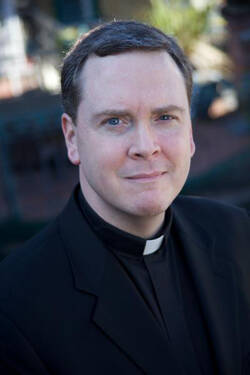Last month I attended the 2014 Erasmus Lecture sponsored by First Things, the journal of opinion founded by the late Rev. Richard John Neuhaus. The lecture was given by Archbishop Charles J. Chaput of Philadelphia; his theme was “Strangers in a Strange Land,” a thought-provoking account of the current state of the church in the United States. America’s readers will know that this journal has expressed different opinions from those held by Archbishop Chaput on some matters of prudential judgment. I had some critical questions about his talk, but there was also much to commend it.
You would not know that, however, from some of the media coverage. Some commentators, for example, thought that the archbishop had denounced the recently concluded Synod of Bishops and had even criticized the pope himself. Yet Archbishop Chaput did neither of those things. His critique of the synod was in fact a critique of the media coverage of the synod. “I wasn’t there,” the archbishop said when asked about the synod, which was not a topic he addressed in his prepared remarks. “That’s very significant, because to claim you know what really happened when you weren’t there is foolish.... I don’t think the press deliberately distorts, they just don’t have any background to evaluate things.”
Now one can disagree with the archbishop’s view here, but when he was addressing the “confusion” around the synod, he was speaking of the public perception and media coverage, not the proceedings themselves. Such distinctions matter, precisely because this hopeful time in the life of the church is also one fraught with anxiety. At a minimum, the media have an obligation not to add to the anxiety. The Catholic media, in other words, which have “the background to be able to evaluate things,” cannot afford to fall into patterns of reporting that are indistinguishable from those in the secular media. America, of course, is not perfect. We don’t always get it right either, and the frenzy of the 24-hour news cycle and ever-expanding digital technologies make it harder to get it right.
But there are other forces at work. In addition to its more noble motivations, the press in the United States exists in order to build mass markets for advertisers. In the past this was done, especially in television news, by appealing to as wide a demographic as possible. Back in the day, Lyndon Johnson and Barry Goldwater both watched Walter Cronkite. With the advent of the 24-hour news cycle and the proliferation of television news outlets, media organizations now create markets for advertisers by slicing and dicing demographic groups, crafting their coverage for audiences of like-minded people. Thus Fox News appeals to one group and MSNBC appeals to another by producing content that pits one faction against another and then groups them into winners and losers.
It is important that we in the Catholic media not allow this to happen to us. The reporters I know are hardworking professionals with the right motives; more often than not they get the story right. Yet this is not an ordinary time. Pope Francis, in his most recent address for World Communications Day, called for the Catholic media to reflect carefully on our unique mission, which, in the present national media environment, is profoundly countercultural. All of us—bishops, priests, laypeople and reporters—would do well to heed his words: “We are challenged to be people of depth, attentive to what is happening around us and spiritually alert. To dialogue means to believe that the ‘other’ has something worthwhile to say, and to entertain his or her point of view and perspective. Engaging in dialogue does not mean renouncing our own ideas and traditions, but the claim that they alone are valid or absolute.”








